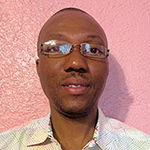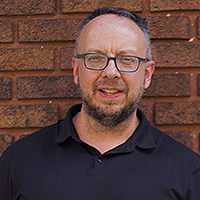by Sam Charles
The narrative of the Israelites’ enslavement in Egypt is one of the most compelling and well-known stories in the Bible. It resonates profoundly with Haiti’s history, when we consider the Haitian people’s subjugation by the French in what was then called the colony of Saint Domingue. Just like the Israelites were forced to live in slavery for centuries, the Haitian people also suffered under harsh conditions.
The Israelites found themselves in a state of desolation and despair, with no human hope for escaping their situation any hope for escaping oppression (c.f. Frame, 2013). When they cried out to God, God listened and intervened, delivering them from the oppressive forces. This deliverance is a testament to the Lord’s benevolence, responsiveness to his people’s needs, and faithfulness to his promises.
One of the most important parts of this story is the slaughter of a lamb. The Israelites were told by God through Moses to kill a lamb and spread its blood on the sides and tops of their doorframes. This act protected them from the final plague in Egypt. The lamb, which had to be a year old and without defects, symbolized innocence and purity. This sacrifice wasn’t just about physical protection—it also marked the beginning of their journey to spiritual, social, and political liberation (c.f. Exodus 12:1–14).
This paschal lamb served as a prototype for Jesus Christ, who was cruelly executed on the cross. Jesus selflessly sacrificed his life to bear the sins of humanity and take upon himself the burden of our collective guilt.
The prophet Isaiah said, “But he was pierced for our transgressions, he was crushed for our iniquities; the punishment that brought us peace was upon him and by his wounds we are healed” (Isaiah 53:5, NIV).
This assertion may seem perplexing or contradictory. It suggests that Jesus’ wounds, his suffering and death can heal our inner pain—our guilt, shame, and moral failures. Yet, we recognize Jesus as the Lamb of God, who through his death, facilitated the spiritual liberation of all who believe in him. John 1:29 says,” Look, the Lamb of God, who takes away the sin of the world”. (NIV)
Happy Passover!

Samuel Charles
Samuel Charles is the pastor of Bethel Worship and Teaching Center in Levittown, PA and a member of Mosaic’s Intercultural Committee.
Mosaic values two-way communication and encourages our constituents to respond with feedback, questions, or encouragement. To share your thoughts or send a message to the author(s), contact us at communication@mosaicmennonites.org.




 At Bethany we share communion at least three times each year. Our first communion service is in January when we renew our annual membership covenant with each other. Our system of membership at Bethany is an odd hybrid. We can become members by taking a membership class and being baptized or by transferring a letter of membership from another congregation, and we can become members by annually affirming our covenant with this congregation. When we renew our membership covenant each January, affirming that we intend to walk with this particular group of people and uphold our commitments to what we state in our covenant, we mark this by celebrating communion together.
At Bethany we share communion at least three times each year. Our first communion service is in January when we renew our annual membership covenant with each other. Our system of membership at Bethany is an odd hybrid. We can become members by taking a membership class and being baptized or by transferring a letter of membership from another congregation, and we can become members by annually affirming our covenant with this congregation. When we renew our membership covenant each January, affirming that we intend to walk with this particular group of people and uphold our commitments to what we state in our covenant, we mark this by celebrating communion together.


